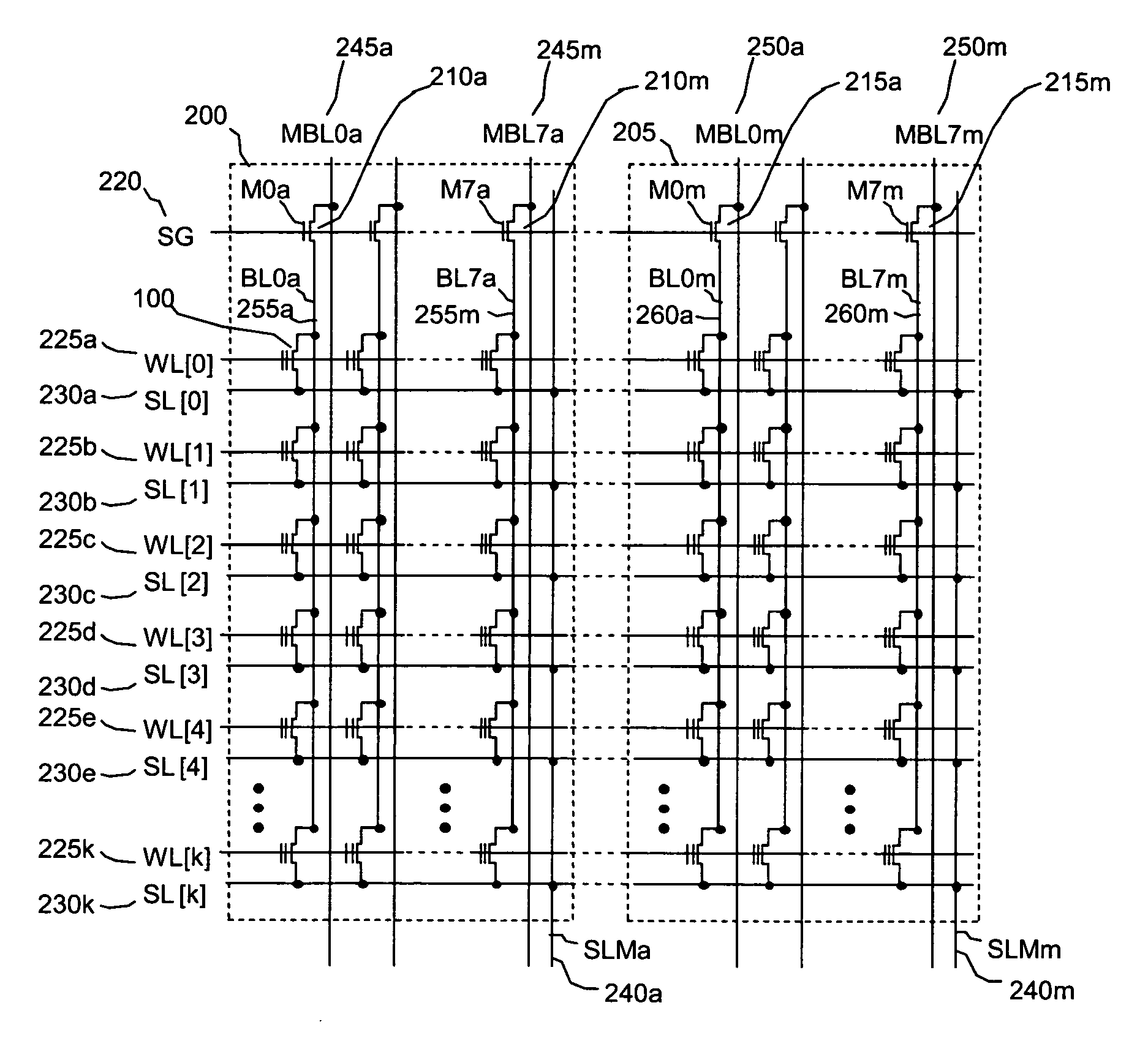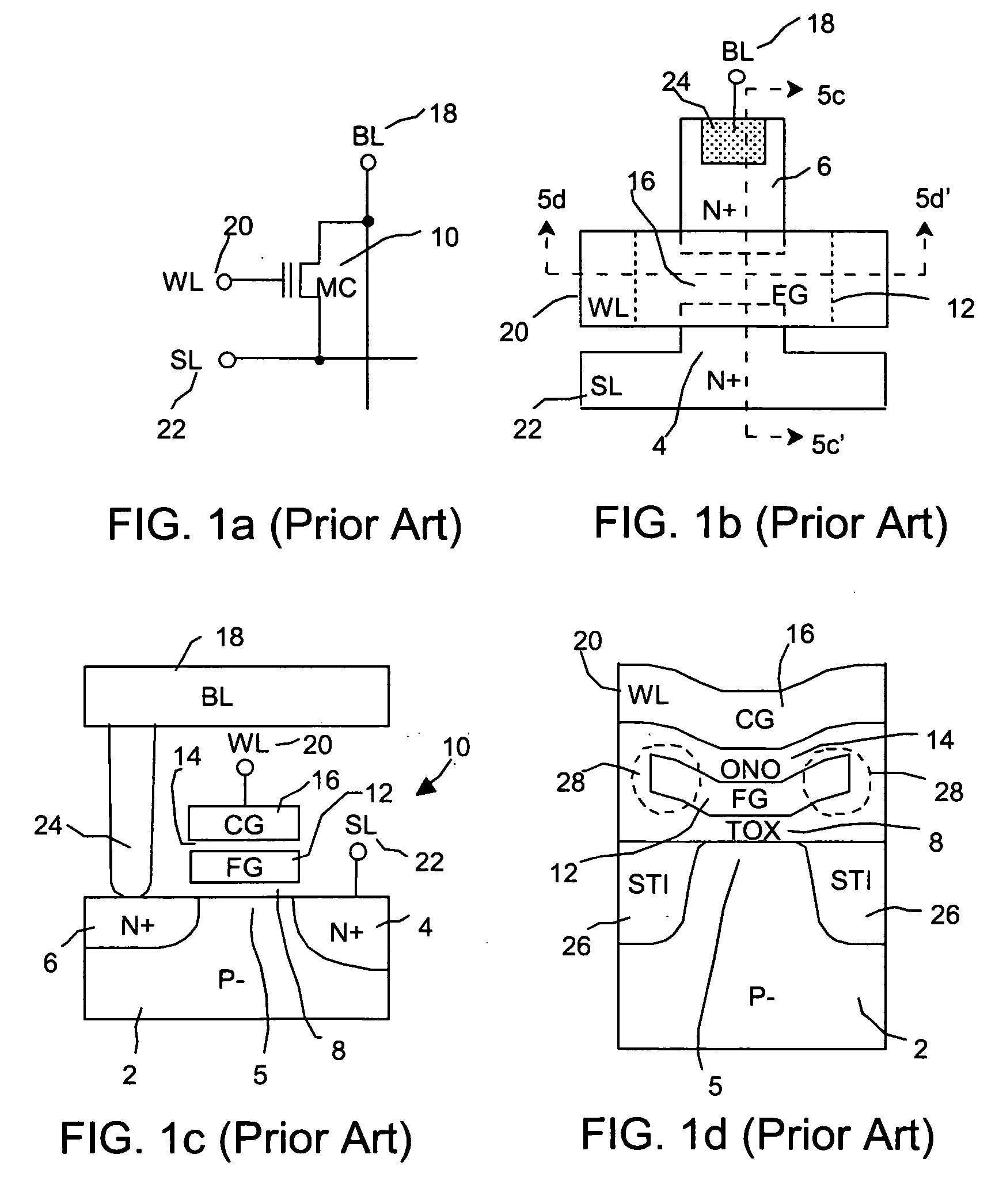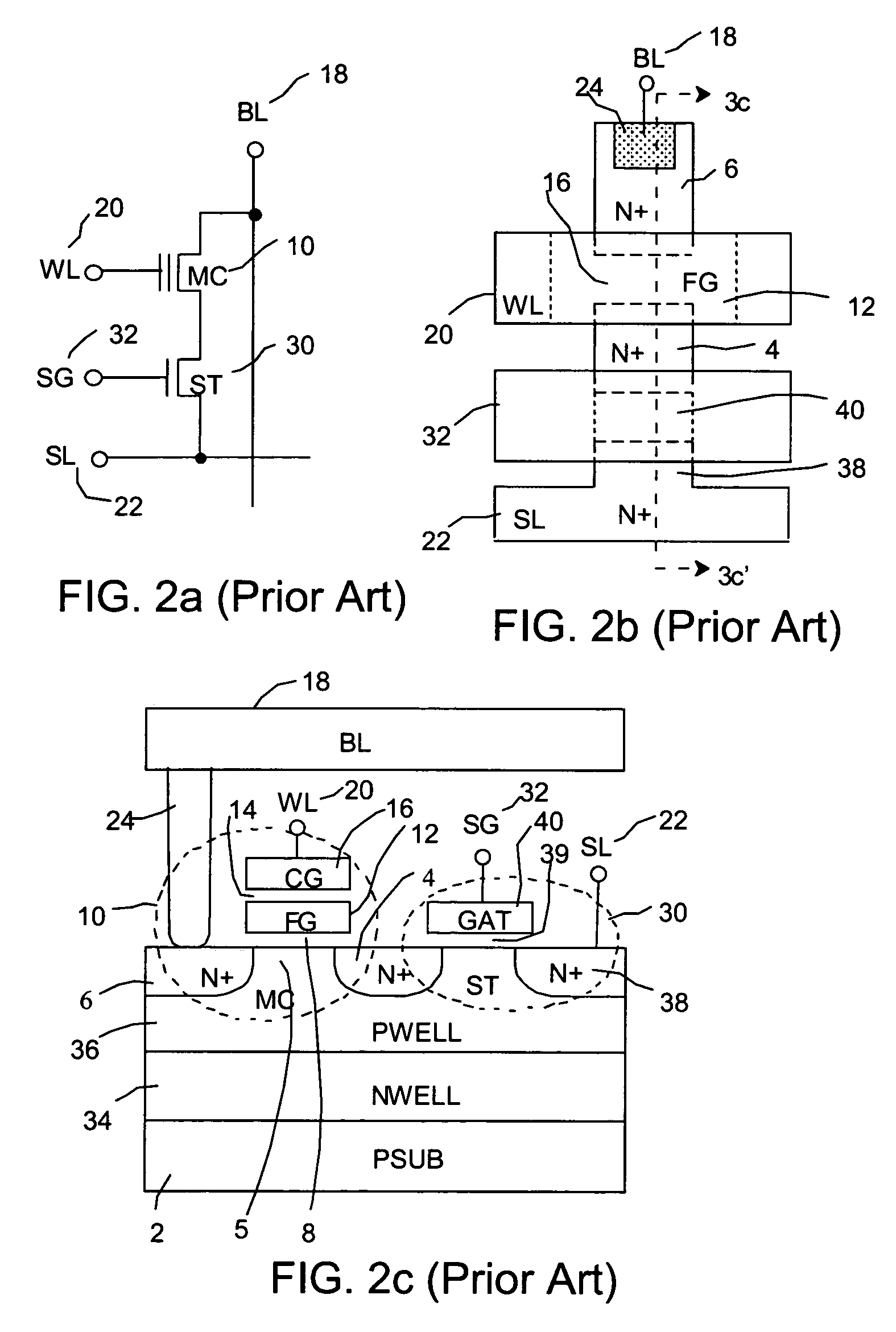Novel monolithic, combo nonvolatile memory allowing byte, page and block write with no disturb and divided-well in the cell array using a unified cell structure and technology with a new scheme of decoder and layout
a nonvolatile memory and cell array technology, applied in the field of nonvolatile integrated circuit memory, can solve the problems of preventing the design of memory cells, affecting the performance of memory cells,
- Summary
- Abstract
- Description
- Claims
- Application Information
AI Technical Summary
Benefits of technology
Problems solved by technology
Method used
Image
Examples
Embodiment Construction
[0067] As described above the EEPROM nonvolatile memory is distinguished from the Flash memory in that the byte-alterable feature of the EEPROM is used to store the data code as opposed to the block (page or full chip) alterability of the Flash memory for storing program code. Since EEPROM is used for retaining information that is changed more often such as data, the EEPROM is subjected to more programming and erasing cycles in units of bytes and therefore, the EEPROM must have a higher endurance. In order to achieve high endurance of 1 million cycles, high-voltage bitline (program) and wordline (erase) disturbs to the non-selected bytes have to be eliminated during repeat program and erase operations. This has led to a two transistor EEPROM nonvolatile memory cell that is large and non-scalable but offers no bitline program disturb. In addition, the wordline of EEPROM cell array has been traditionally divided to avoid wordline erase disturb to the unselected bytes. Alternately, the...
PUM
 Login to View More
Login to View More Abstract
Description
Claims
Application Information
 Login to View More
Login to View More - R&D
- Intellectual Property
- Life Sciences
- Materials
- Tech Scout
- Unparalleled Data Quality
- Higher Quality Content
- 60% Fewer Hallucinations
Browse by: Latest US Patents, China's latest patents, Technical Efficacy Thesaurus, Application Domain, Technology Topic, Popular Technical Reports.
© 2025 PatSnap. All rights reserved.Legal|Privacy policy|Modern Slavery Act Transparency Statement|Sitemap|About US| Contact US: help@patsnap.com



